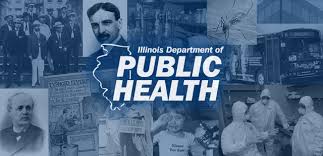Philip Ovadia, MD, has a roadmap for the next time you go to the grocery store: stick to the outer sections. That’s where you’ll find fruits, vegetables, dairy and less processed meats.
The further in you go, the more likely you are to encounter sugary, processed foods that can harm your health when consumed en masse.
“What we eat on a daily basis is the biggest risk factor for developing heart disease,” says Dr. Ovadia, an OSF HealthCare cardiothoracic surgeon who, himself, changed his eating habits and went on a weight loss journey.
What we eat on a daily basis is the biggest risk factor for developing heart disease.

Dr. Philip Ovadia, OSF HealthCare cardiothoracic surgeon
Moreover, he says, health care experts have moved away from high fat and high cholesterol foods driving heart disease risk. That’s not a license to eat those foods all the time. But it’s more important, experts say, to keep an eye on sugary and processed foods.
Some chief examples: candy, snack cakes, cereal, cookies, chips, crackers and packaged or canned food. Think boxes, bags and colorful labels. After all, the manufacturers want you to buy the products.
And here’s one you’ll hear many doctors say: don’t drink your calories. In other words, avoid excess sugary drinks like soda and juice.
“The problem with fruit juices, as opposed to eating the fruit, is that a lot of the fiber has been stripped out of the juice,” Dr. Ovadia warns. “You’re getting very concentrated levels of sugar.”
For example, Dr. Ovadia says a glass of orange juice may contain the juice of around eight oranges. You wouldn’t think twice about downing the orange juice, but would you eat eight oranges in one sitting?
Consequences
In the short term, Dr. Ovadia says eating a lot of sugary and processed foods will cause your blood sugar level to rise.
“Increased sugar in the bloodstream is directly damaging to our blood vessels,” Dr. Ovadia says. “This is one of the things that can start the process of plaque formation, or blockages, in the blood vessels.”
Long term, Dr. Ovadia says your body can become insulin-resistant. Insulin is the primary hormone your body uses to control blood sugar level. If you’re insulin-resistant, insulin can’t do its job. Dr. Ovadia says this is a precursor to diabetes and metabolic syndrome, a cluster of unhealthy conditions. Both are “major” risks for heart disease, he says.
Some tips:
- Look for “added sugar” on the food or drink label, and consider skipping that food.
- Find foods that are as close to naturally occurring as possible. As Dr. Ovadia puts it: things that grow in the ground or things that eat things that grow in the ground.
“You should be able to look at your food and know exactly what’s in it,” Dr. Ovadia says. “It should have simple ingredients. You can look at them and know what they are.”
Or ask yourself: would my great grandparents have this food available? Would they even recognize it as food?
For breakfast, try fresh fruit or a hard-boiled egg instead of a biscuit. For lunch, eat a salad with ingredients you mixed instead of a pre-packaged salad. And for dinner, get a lean protein like chicken or fish from the deli counter, not sliced meat in a package.
- Pay attention to how you feel after eating.
“If you find yourself getting hungry very quickly after eating, that’s a sign that food is not providing your body with the nutrition it’s looking for,” Dr. Ovadia says.
That means you shouldn’t look at junk food as “in moderation,” Dr. Ovadia says, because you’ll most always be left hungry. He prefers the phrase: “the lower junk food, the better.”














